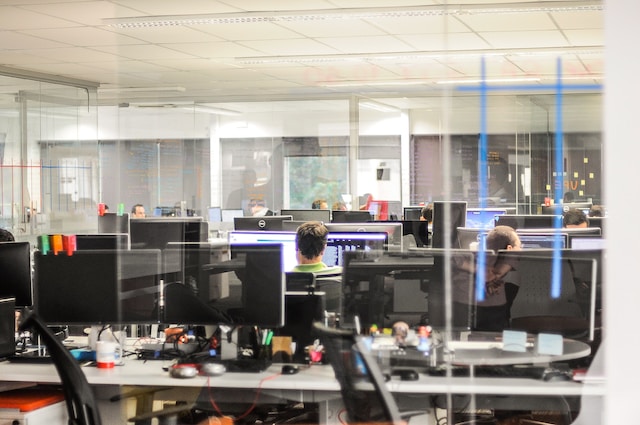Security Architect vs. Principal Security Engineer
Security Architect vs Principal Security Engineer: A Comprehensive Comparison

Table of contents
In the world of cybersecurity, there are several roles that are critical to ensuring the safety and security of an organization's data and systems. Two such roles are Security Architect and Principal Security Engineer. While both roles are focused on cybersecurity, they have distinct differences in terms of their responsibilities, required skills, educational backgrounds, tools and software used, common industries, outlooks, and practical tips for getting started in these careers.
Definitions
A Security Architect is responsible for designing, building, and maintaining the security systems of an organization. They work closely with other IT professionals to ensure that the organization's security policies and procedures are up-to-date and effective. A Security Architect is also responsible for identifying potential security risks and developing strategies to mitigate them.
On the other hand, a Principal Security Engineer is responsible for designing, implementing, and maintaining the security infrastructure of an organization. They work closely with other IT professionals to ensure that the organization's security systems are up-to-date and effective. A Principal Security Engineer is also responsible for identifying potential security risks and developing strategies to mitigate them.
Responsibilities
The responsibilities of a Security Architect include:
- Developing and implementing security policies and procedures
- Identifying potential security risks and developing strategies to mitigate them
- Designing and implementing security systems
- Conducting security Audits and risk assessments
- Managing security incidents and responding to security breaches
- Collaborating with other IT professionals to ensure the security of the organization's systems and data
The responsibilities of a Principal Security Engineer include:
- Designing and implementing security infrastructure
- Identifying potential security risks and developing strategies to mitigate them
- Conducting security Audits and risk assessments
- Managing security incidents and responding to security breaches
- Collaborating with other IT professionals to ensure the security of the organization's systems and data
- Leading and mentoring other security engineers
Required Skills
The required skills for a Security Architect include:
- Knowledge of security standards and best practices
- Strong problem-solving and analytical skills
- Excellent communication and collaboration skills
- Ability to work independently and as part of a team
- Knowledge of cybersecurity technologies and tools
- Understanding of network and system architecture
The required skills for a Principal Security Engineer include:
- Knowledge of security standards and best practices
- Strong problem-solving and analytical skills
- Excellent communication and collaboration skills
- Ability to work independently and as part of a team
- Knowledge of cybersecurity technologies and tools
- Understanding of network and system architecture
- Leadership and mentoring skills
Educational Backgrounds
The educational backgrounds for a Security Architect typically include a bachelor's or master's degree in Computer Science, information technology, or a related field. They may also have additional certifications, such as Certified Information Systems Security Professional (CISSP) or Certified Information Security Manager (CISM).
The educational backgrounds for a Principal Security Engineer typically include a bachelor's or master's degree in computer science, information technology, or a related field. They may also have additional certifications, such as CISSP, Certified Ethical Hacker (CEH), or Offensive security Certified Professional (OSCP).
Tools and Software Used
The tools and software used by a Security Architect include:
- Security information and event management (SIEM) tools
- Vulnerability scanners
- Firewall and Intrusion detection/prevention systems
- Encryption software
- Penetration testing tools
- Anti-virus software
The tools and software used by a Principal Security Engineer include:
- SIEM tools
- Vulnerability scanners
- Firewall and Intrusion detection/prevention systems
- Encryption software
- Penetration testing tools
- Anti-virus software
- Network Monitoring tools
Common Industries
Security Architects and Principal Security Engineers are in high demand in a variety of industries, including:
- Financial services
- Healthcare
- Retail
- Government
- Technology
- Energy
Outlooks
The outlook for both Security Architects and Principal Security Engineers is positive, with job growth projected to be higher than average for both roles. According to the Bureau of Labor Statistics, employment of information security analysts (which includes both roles) is projected to grow 31 percent from 2019 to 2029, much faster than the average for all occupations.
Practical Tips for Getting Started
If you're interested in pursuing a career as a Security Architect or Principal Security Engineer, here are some practical tips to get you started:
- Obtain a degree in Computer Science, information technology, or a related field
- Gain experience in IT or cybersecurity through internships, entry-level positions, or volunteer work
- Obtain relevant certifications, such as CISSP or CEH
- Develop strong problem-solving and analytical skills
- Stay up-to-date with the latest cybersecurity trends and technologies
Conclusion
In conclusion, Security Architects and Principal Security Engineers play critical roles in ensuring the safety and security of an organization's data and systems. While both roles have similar responsibilities and required skills, there are distinct differences in terms of their focus and leadership responsibilities. Understanding these differences can help you make an informed decision about which role is right for you and how to pursue a career in cybersecurity.
SOC 2 Manager, Audit and Certification
@ Deloitte | US and CA Multiple Locations
Full Time Mid-level / Intermediate USD 107K - 179KInformation Security Engineers
@ D. E. Shaw Research | New York City
Full Time Entry-level / Junior USD 230K - 550KCyber Intelligence, Senior Advisor
@ Peraton | Chantilly, VA, United States
Full Time Senior-level / Expert USD 146K - 234KStaff DevSecOps Engineer
@ Raft | San Antonio, TX (Local Remote)
Full Time Senior-level / Expert USD 120K - 190KCybersecurity Engineer
@ Peraton | Fort Meade, MD, United States
Full Time Senior-level / Expert USD 146K - 234KStaff Product Security Engineer
@ ServiceNow | San Diego, California, United States
Full Time Senior-level / Expert USD 149K - 261K